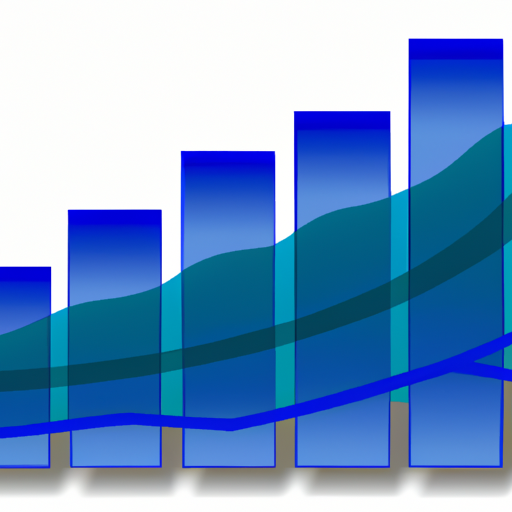What is a Financial Planner and What Do They Do?
A financial planner is a professional who helps individuals and organizations manage their money. Financial planners are knowledgeable in a variety of topics, from investment strategies and retirement planning to estate planning and taxes. They provide personalized advice and guidance to help clients reach their financial goals.
One of the most important services a financial planner can provide is retirement planning. Retirement planning involves assessing an individual’s current financial situation and helping them to create a plan that will get them to their desired retirement outcome. A financial planner can help you figure out how much money you will need to save and invest in order to achieve your retirement goals. They can also provide insight into the best investments that will yield the greatest return over the long term.
When considering whether or not to use a financial planner for retirement planning, it’s important to weigh the pros and cons. On the one hand, using a financial planner can be beneficial because they have the experience and expertise to devise a plan that is tailored to your needs and goals. They also have access to tools and resources that can help you track your progress and make adjustments as needed.
On the other hand, working with a financial planner can be expensive. Depending on the type of services you require, you may have to pay a fee for their services. Additionally, when working with a financial planner, you should always make sure that they are licensed and registered with the relevant governing bodies in your area.
When deciding whether or not to use a financial planner for retirement planning, it’s important to ask yourself what your financial goals are and how much you can afford to spend. If you’re confident that you can manage your finances on your own and don’t need the expertise of a financial planner, then it may be best to go it alone. However, if you feel like you need the guidance of a professional, then it may be worth the cost to get the help you need.
No matter what your decision, it’s important to remember that retirement planning is an ongoing process. It’s essential to review your financial plan regularly and make adjustments as needed in order to ensure that you’re on track to reach your retirement goals. Working with a financial planner can be a great way to ensure that you’re properly preparing for your retirement, and can give you peace of mind knowing that you’re taking the necessary steps to secure your financial future.

Disadvantages of Working with a Financial Planner
When it comes to retirement planning, many people choose to work with a financial planner to ensure they are making the right decisions for their future. However, working with a financial planner may not always be the right choice. There are some major disadvantages associated with working with a financial planner that should be carefully considered before making a decision.
The first disadvantage of working with a financial planner is the cost. Financial planners charge a fee for their services, which can be quite expensive. Depending on the complexity of your situation, the fees could range from hundreds to thousands of dollars. This could be a major burden for those who are already on a tight budget and may not be able to afford the services of a financial planner.
Another disadvantage of working with a financial planner is that they may not be familiar with your specific situation. Financial planners are typically trained to work with a variety of different scenarios, but it’s impossible for them to be proficient in all areas. As a result, they may not be able to provide you with the most tailored advice for your particular situation.
In addition, there is always the risk that the financial planner may not have your best interests at heart. While most financial planners strive to do the best they can for their clients, there are some who are more interested in making a sale than in providing sound advice. Before you choose to work with a financial planner, it’s important to do your due diligence and make sure they are reputable and trustworthy.
Finally, it’s important to remember that financial planners cannot guarantee your future success. They can provide you with sound advice and guidance, but ultimately, the decisions you make and the actions you take are up to you. It’s important to remember that when it comes to retirement planning, you are in control of your own future.
Overall, working with a financial planner can be beneficial in many ways, but it’s important to consider the disadvantages carefully before making a decision. It’s important to be aware of the potential costs, the lack of specialized knowledge, the risk of working with an unreliable planner and the fact that no one can guarantee your future success. With this knowledge in mind, you can make an informed decision about whether working with a financial planner is the right choice for you.

Do-It-Yourself Retirement Planning
When it comes to retirement planning, it is important to consider all of your options and determine which approach is best for you. One of the most popular approaches to retirement planning is do-it-yourself (DIY) retirement planning. DIY retirement planning allows you to take control of your retirement finances, and you can tailor the planning to your specific needs and goals. There are several pros and cons to DIY retirement planning that should be considered before taking this approach.
The biggest benefit to DIY retirement planning is that it can be both cost-effective and convenient. You won’t need to pay an expensive financial planner or advisor to manage your retirement finances, and you can adjust your plan as your needs and goals change. Plus, you can access a vast array of resources online to help you manage your retirement finances, such as budgeting and investment tracking tools.
Another positive aspect of DIY retirement planning is that it allows you to be more creative with your retirement savings strategy. You can explore different investment options and tailor a plan that works best for your specific situation. This could include investing in a mix of stocks, bonds, mutual funds, ETFs, and more. Additionally, you can also explore different tax strategies to maximize your savings and reduce your tax burden in retirement.
However, there are also some drawbacks to DIY retirement planning. One of the primary disadvantages is that it can be time-consuming and overwhelming. You’ll need to do your own research and make your own decisions, which can be a daunting task for those who are unfamiliar with retirement investing. Additionally, you may not have access to the same resources and advice as those who work with a financial planner.
Overall, DIY retirement planning can be a great option for those who are willing to put in the time and effort to research and manage their retirement finances. It can be a cost-effective way to take control of your retirement finances and create a unique plan tailored to your needs and goals. However, it is important to consider all of the pros and cons before making a decision. Ultimately, it comes down to finding the approach that works best for you.

What to Look for When Choosing a Financial Planner
Choosing the right financial planner is an essential decision when it comes to retirement planning. It’s important to find someone who is experienced and who has your best interests in mind. But how can you tell if a financial planner is the right fit for you? Here are some things to consider when you’re looking for a financial planner.
First and foremost, make sure that your financial planner is properly qualified and certified. It’s important to find someone who has the necessary education and experience to offer you sound advice. If a financial planner is not certified, it’s best to look for someone else.
Next, it’s important to make sure that your financial planner is properly licensed. Make sure that he or she is registered with the appropriate governing body in your state or province. This will ensure that the financial planner is held to the highest professional standards.
It’s also important to make sure that your financial planner is a good fit for you. Ask questions and get to know your financial planner. Find out what their philosophy is and if they align with your values. Also, make sure that they understand your goals and objectives for retirement planning and that they’re willing to work with you to help you reach them.
Another important factor to consider when choosing a financial planner is their fees. It’s important to make sure that the fees are reasonable and that you understand what you’re paying for. If the fees seem high, consider speaking to other planners and see if they can provide you with a better deal.
Finally, it’s important to find out how your financial planner will communicate with you. Make sure that the planner is available when you need them and that they’re willing to answer all of your questions. You should also find out how often they’ll be providing you with updates and information.
When it comes to retirement planning, it’s important to choose a financial planner that you feel comfortable with and trust. Make sure to do your research, ask questions, and make sure that you’re getting the best advice for your situation. With the right financial planner, you can ensure that you’ll have the best retirement possible.

Advantages of Working with a Financial Planner
Retirement planning is an essential part of financial planning. It is important to make sure that your retirement savings are sufficient to cover your future needs. Working with a financial planner can provide a number of advantages that can help you make the most of your retirement savings. Here are some of the benefits of working with a financial planner for retirement planning:
- Professional Expertise: Working with a professional financial planner can give you access to experienced and knowledgeable advice. Financial planners have years of experience and training in financial planning and can provide you with the best advice and strategies for your retirement plan. They can help you create a retirement plan that is tailored to your unique needs, goals, and objectives.
- Risk Management: Financial planners can help you manage the risk associated with investing and retirement planning. They can help you develop an investment strategy that is suitable for your risk tolerance and financial goals. Financial planners can help you understand the different types of investments and how each one works. They can also explain the different risks associated with each type of investment.
- Tax Planning: Financial planners can provide you with tax advice and help you understand how different investments can affect your taxes. They can help you minimize your taxes and maximize your retirement savings. Financial planners can also help you understand how different strategies can reduce the amount of taxes you pay.
- Estate Planning: Financial planners can help you create an estate plan that will ensure your financial future. They can help you create a strategy that will provide for your family and protect your assets. They can also help you understand the different types of trusts, wills, and other legal documents that can be used to protect your estate.
- Investment Advice: Financial planners can provide you with advice and guidance on selecting the right investments for your retirement plan. They can explain the different investment options and help you select the ones that are right for you. Financial planners can also provide you with advice on how to diversify your portfolio and reduce risk.
- Retirement Goals: Financial planners can help you set realistic retirement goals and create a plan to reach them. They can help you identify your retirement needs and develop a strategy that will help you achieve them. They can also help you understand the different types of retirement accounts and help you select the ones that best fit your needs.
- Financial Education: Financial planners can provide you with important financial education. They can help you understand different financial concepts and provide you with the tools to make smarter financial decisions. They can also provide you with resources to help you stay informed about the latest financial news and trends.
- Support: Working with a financial planner can provide you with emotional and financial support. They can provide you with guidance and advice on how to manage your retirement plan and provide you with the support you need to make the right decisions.
Working with a financial planner can provide many benefits for your retirement planning. They can provide you with expertise and advice, help you manage risk, provide tax advice, and help you create an estate plan. They can also provide you with investment advice and help you set realistic retirement goals. Finally, they can provide you with financial education and emotional and financial support.

The Risks of Do-It-Yourself Retirement Planning
Retirement planning can be an overwhelming task for most people, and for that reason, many turn to financial planners for help. However, there are risks associated with do-it-yourself retirement planning that should be taken into consideration. While do-it-yourself retirement planning can be an effective way to save for the future, it’s important to understand the risks associated with such a strategy.
The first risk of do-it-yourself retirement planning is that there is a lack of professional guidance. Without the knowledge and experience of a professional financial planner, it can be difficult to know what investments, savings plans, and other strategies are best for you. Additionally, without the help of a professional, you may be unable to make the most of your money, resulting in a less secure retirement.
The second risk of do-it-yourself retirement planning is that it can be time consuming. Retirement planning requires a great deal of research, analysis, and decision-making, which can take up a lot of your time and energy. Additionally, it can be difficult to stay on top of all the changes in the financial markets that can affect your retirement plan.
The third risk of do-it-yourself retirement planning is that you may make mistakes. Without the help of a professional, you may lack the necessary understanding to make the best decisions for your retirement plan. Additionally, you may be unaware of the tax implications of certain investments or savings strategies.
The fourth risk of do-it-yourself retirement planning is that you may overlook important aspects of your financial plan. Without the help of a professional, it can be easy to overlook the importance of insuring against financial catastrophes, such as long-term care expenses, or the need to factor in inflation.
Finally, the fifth risk of do-it-yourself retirement planning is that it can be emotionally draining. Retirement planning can be an emotionally trying process, and without the help of a professional, you may be unable to manage the financial, emotional, and psychological stress of such an important decision.
While there are risks associated with do-it-yourself retirement planning, there are also many benefits. Do-it-yourself retirement planning can be an effective way to save for the future, and it can be a cost-effective solution if you have a good understanding of the financial markets. Additionally, it can provide you with the opportunity to take control of your financial future, which can be a great source of empowerment.
Ultimately, the decision of whether to use a financial planner or pursue do-it-yourself retirement planning is a personal one. It’s important to weigh the risks and benefits of each option carefully before making a decision. With the right planning and preparation, you can ensure that your retirement plan is a success.

The Benefits of Do-It-Yourself Retirement Planning
When it comes to retirement planning, there are many ways to go about it. Some people may choose to work with a financial planner while others may prefer to do it themselves. While there are many benefits to hiring a financial planner, do-it-yourself retirement planning can also be a great option.
Do-it-yourself retirement planning can be an attractive option for a number of reasons. One of them is the cost savings. Hiring a financial planner can be expensive and may take away from the funds you are saving for retirement. Doing it yourself gives you the freedom to manage your own retirement planning and not be bound to the fees and charges associated with a financial planner.
Doing it yourself also gives you more control over your retirement planning. You can choose the retirement plan that is most suitable for your needs and goals, and you can make changes as your goals and financial situation changes over time. There is no need to consult a financial planner every time you make a change, so you have more flexibility in designing and managing your own retirement plan.
Managing your own retirement plan also allows you to keep a close eye on your investments. You will be able to monitor your investments and make any needed changes without having to consult a financial planner. This can be especially beneficial if you want to stay informed about the stock market, or if you want to take a more active role in managing your retirement savings.
Another benefit of do-it-yourself retirement planning is that you can take advantage of tax-advantaged retirement accounts. For example, if you are contributing to a Traditional IRA or Roth IRA, you can make sure you are taking full advantage of the tax advantages they offer. By taking control of your own retirement plan, you can ensure that you are taking full advantage of these tax-advantaged accounts.
Finally, do-it-yourself retirement planning can be empowering. By taking control of your own retirement planning, you are taking an active role in your financial future and taking responsibility for your own retirement savings. It can give you a sense of satisfaction and control in knowing that you are taking the necessary steps to secure your financial future.
Overall, do-it-yourself retirement planning has many benefits. It can save you money on fees and charges, give you more control over your retirement plan, allow you to keep a close eye on your investments, and take advantage of tax-advantaged accounts. It also can be empowering, giving you a sense of satisfaction and control in knowing that you are taking charge of your retirement planning.

Making the Right Decision for Your Retirement Planning
The decision to use a financial planner for retirement planning can be a difficult one. On one hand, having a professional handle your retirement planning can provide you with a sense of security, knowing that your retirement is being handled by an expert. On the other hand, the cost of using a financial planner can be high and it can be hard to know if the advice they’re giving is sound. Ultimately, the decision of whether to use a financial planner for retirement planning comes down to your individual needs and preferences.
The key to making the right decision is to understand the pros and cons of using a financial planner for retirement planning. A financial planner can help you make the right decisions for your retirement, such as how much to save, what types of investments to make, and when to take withdrawals. They can also help you stay on track by tracking your progress, implementing strategies that help you reach your goals, and providing guidance when markets become volatile. However, using a financial planner can be costly, and the quality of advice can vary greatly from one financial planner to another.
When deciding whether to use a financial planner for your retirement planning, it’s important to consider the type of advice you’re looking for. If you’re looking for comprehensive advice that covers all aspects of your retirement planning, a financial planner may be the right choice. However, if you’re looking for basic advice, such as how much to save and when to take withdrawals, you may be able to get the same advice for free from online resources.
In addition to understanding the pros and cons of using a financial planner for retirement planning, it’s also important to consider your own goals and financial situation. A financial planner can help you set realistic goals and develop a plan to reach them, but they may not be able to provide customized advice that takes into account your specific financial situation. Before deciding to use a financial planner, be sure to evaluate your own goals and financial situation to make sure that their advice is right for you.
Finally, it’s important to remember that retirement planning is a long-term process. Even if you decide to use a financial planner for your retirement planning, it’s important to stay involved and monitor your progress regularly. Your financial planner can be a valuable resource for advice, but ultimately it’s up to you to ensure that your retirement plan is on track to meet your goals.
Making the right decision for your retirement planning is an important one. Taking the time to understand the pros and cons of using a financial planner, evaluating your own goals and financial situation, and staying involved in the process can help you make the right decision and ensure that your retirement plan is on track to meet your goals.


